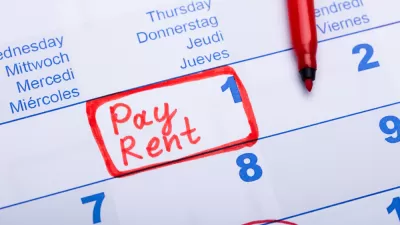In a memorandum, the President acknowledged the federal government's role in patterns of segregation and disinvestment that continue to affect communities of color across the country.

President Biden's acknowledgement of the federal government's central role in "creating and perpetuating today’s patterns of racial segregation, neighborhood disinvestment, housing insecurity, and racial wealth gaps" takes an important step toward advancing racial equality in housing. Biden's recent actions recognize that "facing the facts about our history is a necessary step toward long-overdue healing and provides the foundation for urgently needed policy changes," write Margery Austin Turner, Solomon Greene, and Martha M. Galvez, for the Urban Institute.
The authors list six Institute recommendations for the federal government that could help achieve the goals set out by the new President. The recommendations cover a range of federal programs that, if strengthened, would advance Biden's stated goals, including:
- "vigorously enforce" mandates to restore resources and opportunities in historically disinvested areas
- expand neighborhood choice by enhancing the housing voucher program and eliminating voucher discrimination
- reduce barriers to housing production such as exclusionary zoning policies
- collect and share disaggregated data
- "reaffirm and enforce the disparate impact standard," which acknowledges unintentional discrimination in systemic policies
- close the racial wealth gap through homeownership and home equity initiatives for people of color.
If the administration can follow through with effective initiatives, recognizing the legacy of inequality in federal housing policy and a commitment to change will be "welcome first steps" in redressing past injustices.
FULL STORY: Facing the Facts About Housing Injustice Will Help Pave the Way to Racial Equity

Planetizen Federal Action Tracker
A weekly monitor of how Trump’s orders and actions are impacting planners and planning in America.

Map: Where Senate Republicans Want to Sell Your Public Lands
For public land advocates, the Senate Republicans’ proposal to sell millions of acres of public land in the West is “the biggest fight of their careers.”

Restaurant Patios Were a Pandemic Win — Why Were They so Hard to Keep?
Social distancing requirements and changes in travel patterns prompted cities to pilot new uses for street and sidewalk space. Then it got complicated.

Platform Pilsner: Vancouver Transit Agency Releases... a Beer?
TransLink will receive a portion of every sale of the four-pack.

Toronto Weighs Cheaper Transit, Parking Hikes for Major Events
Special event rates would take effect during large festivals, sports games and concerts to ‘discourage driving, manage congestion and free up space for transit.”

Berlin to Consider Car-Free Zone Larger Than Manhattan
The area bound by the 22-mile Ringbahn would still allow 12 uses of a private automobile per year per person, and several other exemptions.
Urban Design for Planners 1: Software Tools
This six-course series explores essential urban design concepts using open source software and equips planners with the tools they need to participate fully in the urban design process.
Planning for Universal Design
Learn the tools for implementing Universal Design in planning regulations.
Heyer Gruel & Associates PA
JM Goldson LLC
Custer County Colorado
City of Camden Redevelopment Agency
City of Astoria
Transportation Research & Education Center (TREC) at Portland State University
Camden Redevelopment Agency
City of Claremont
Municipality of Princeton (NJ)





























